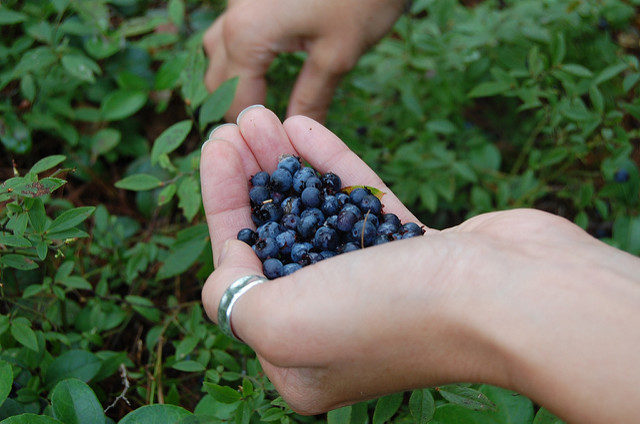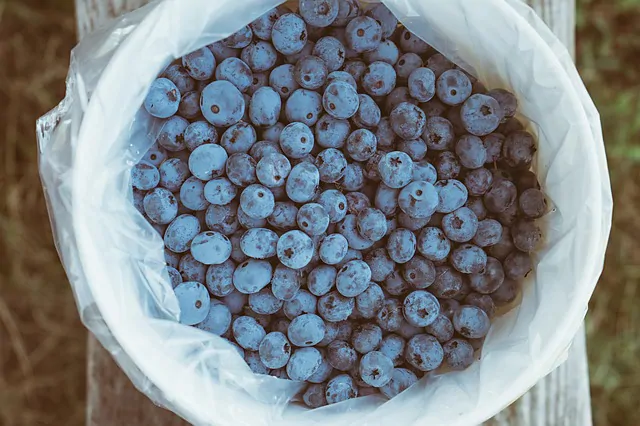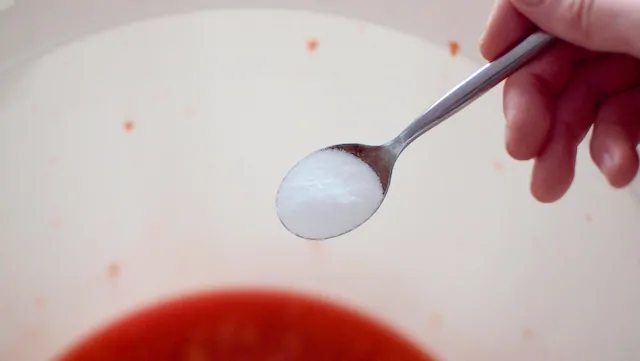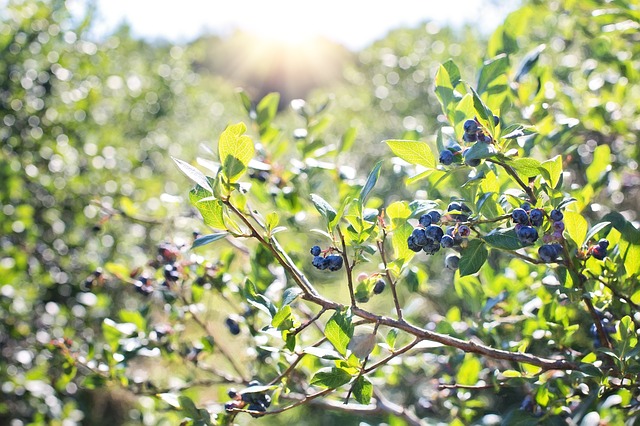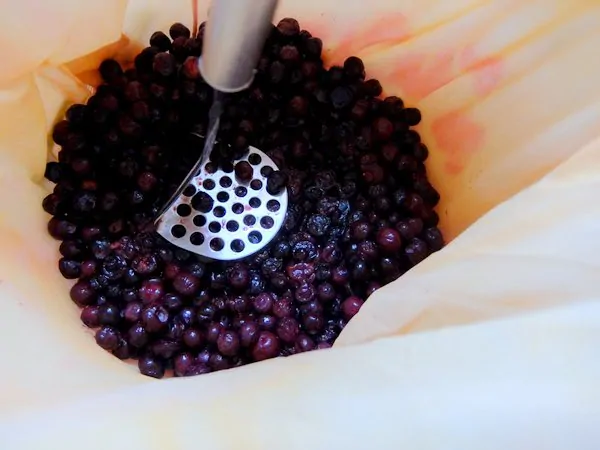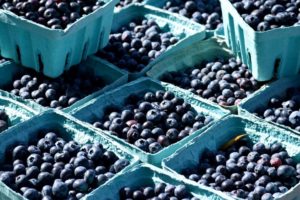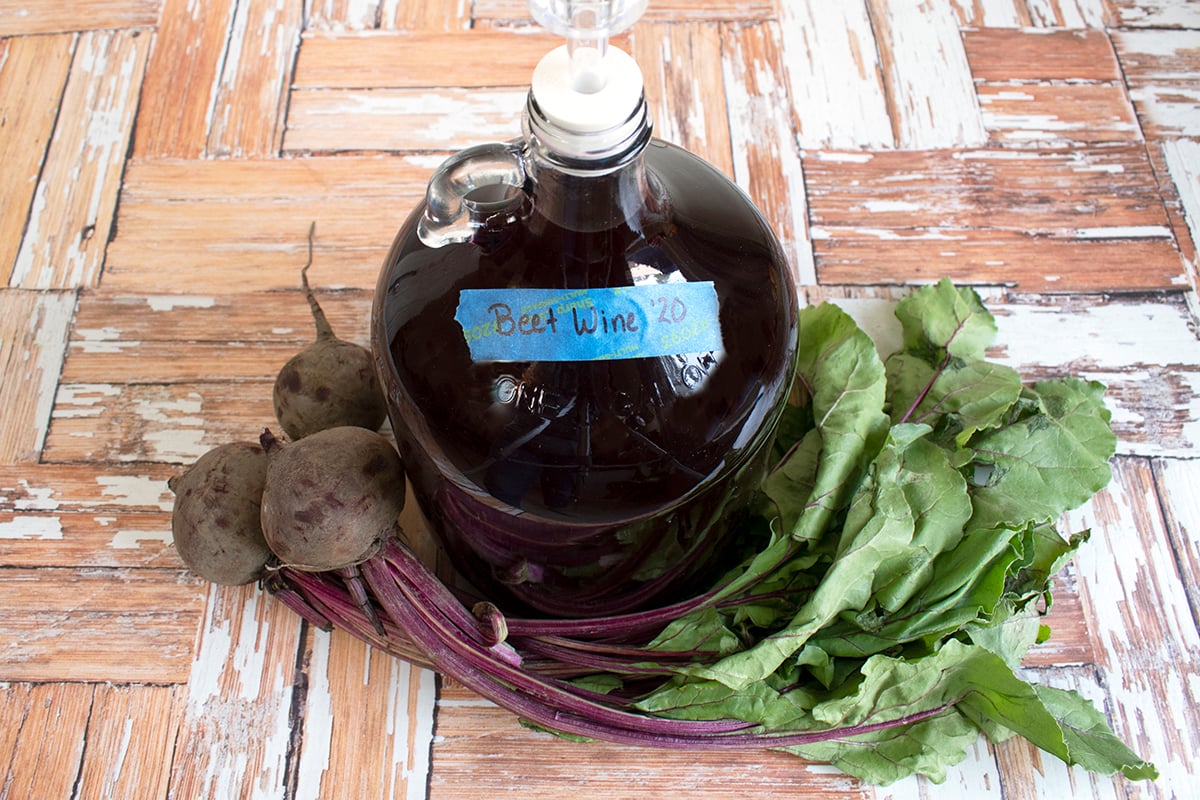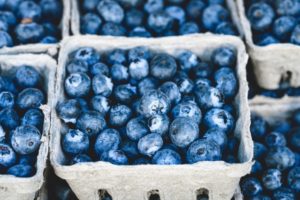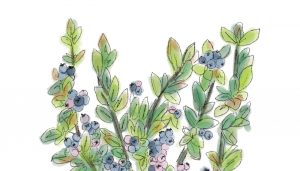Blueberry Wine Recipe
This Blueberry wine recipe is the perfect choice for the beginning winemaker, it also produces a fantastic wine that is full of the flavour of Blueberries, what could be better than that.
When you look at the blueberry it does almost look like a small grape, that is not to say it blueberries have the same qualities as grapes do for making wine they need a little help from you the winemaker.
What blueberries do have though is lots of flavour and colour. This wine recipe makes a rich dark wine similar in colour to a Bordeaux or Syrah.
This deep dark colour comes from the skins of the blueberries just as would come from the skins in a grape wine.
If you cut a blueberry in half you will notice the inside of the berry has a green hue. The result of this blueberry wine recipe, however, is a deep, dark violet.
The colour is extracted from the skins as they sit in the fermenter macerating. Yeast and a slowly increasing alcohol content both help this process along as well as drawing the flavour and sugar from the fruit.
A Basic But Delicious Blueberry Wine
The reason this wine recipe is such a good wine to make for the beginner is the ease of the process and the resulting wine is delicious.
Many fruit wine recipes require lots of small tweaks and refining to produce a decent result whereas the blueberry wine produces a good wine even if you don’t get everything just right.
There are a few additives that you’ll want in this blueberry wine, these are just the usual suspects of any fruit wine.
Acid blend and tannin are required for the vast majority of fruit wines and this blueberry wine is no exception. You should have these kinds of additives, along with pectic enzyme and yeast nutrients to hand for any fruit wine you intend to make.
The blueberries you use, whether they are frozen or fresh, is up to you. As long as the fruit is good quality and ripe you should be in for decent blueberry wine.
Frozen fruit tends to be picked when it’s riper than fresh fruit from the supermarket in this case picking the frozen fruit will result in a better wine. Freezing the fruit will also break down the cells of the fruit releasing the juices and flavour better than just mashing the fruit.
I have used frozen blueberries for this recipe. You can get them year round and they are much cheaper than fresh berries.
If you can get hold of wild blueberries you can, of course, use these, picked at their ripest and being able to choose the highest quality blueberries will make a superior wine.
There aren’t many places in the UK that blueberries grow in the wild, they like heathland with acidic soil and are often called bilberries or blaeberries. If you do intend to pick berries yourself make sure you have properly identified them as blueberries as they can be easily confused with other varieties of plant.
You can grow blueberries in pots in the garden so this might be worth considering if you intend to make a batch of blueberry wine every year, it’s a good recipe so definitely worth considering.
To make this blueberry wine recipe you’ll need the following piece of equipment, pick up all the equipment you need here:
- Fermenting Bucket
- Nylon Straining Bag
- 1 Gallon Demijohn
- Bung & Airlock
- Potato Masher
- Hydrometer
- Syphon
- Bottles, Corks and Corker
The Blueberry Wine Recipe Ingredients – Makes 4.5 litres / 1 gallon around 12% ABV
1.4kg Blueberries fresh or frozen (clean and prepared)
1kg Sugar
4.2 litres Water
2 tsp Citric Acid
1/8 tsp Tannin
1 tsp Yeast Nutrient
1/2 tsp Pectic Enzyme
1 Campden Tablet
1 sachet Wine Yeast (My recommendations – Vintners Reserve R56 / Lalvin 71B / Lalvin EC1118)
Blueberry Wine Recipe Method
- Dissolve the sugar and half the water together in a pan by bringing to the boil. Ensure all of the sugar is fully dissolved and then turn off the heat.
- Whilst heating the sugar and water put the blueberries in a straining bag in the bottom of the fermenting bucket. Use the potato masher to squash the blueberries and break them up. They don’t need to be pureed but make sure all the blueberries are squashed and the juices released.
- Pour the boiled sugar and water solution over the blueberries and mix well with the fruit. Add the second half of the water which will help to cool down the must.
- Add the citric acid, the wine nutrient and the tannin and mix thoroughly, leave for a few hours to cool further and then add a crushed Campden tablet and for at least 12 hours.
- After 12 hours add the pectic enzyme and leave the must for 24 hours. After this, you can test with a hydrometer if you wish for the starting gravity.
- After the 24 hours add the yeast to begin fermentation. Allow fermentation to go on for a week and stir once every one or two days, this helps extract as much flavour from the fruit as possible which will have the tendency to float.
- After a week lift out the straining bag with the pulp and allow to drain as much as possible, avoid squeezing the bag.
Take a hydrometer reading, if the wine is below 1.010 specific gravity rack the wine into a sanitised demijohn. If not leave for a further few days and check the gravity again. Once racked attach a bung and airlock and leave. - Wait for at least 2 months or more and the wine can then be racked off the sediment. You can wait for the blueberry wine to completely clear before racking to a new vessel. After this either let it age further for a few months or bottle. If you wish to back-sweeten the wine stabilise and follow this advice here.
This blueberry wine recipe will make a wine of around 12% ABV. It is best squirrelled away for a while to condition and mature. It keeps well for a couple of years, try and keep some around to sample and you will begin to understand how the wine changes with time.
Read more:

